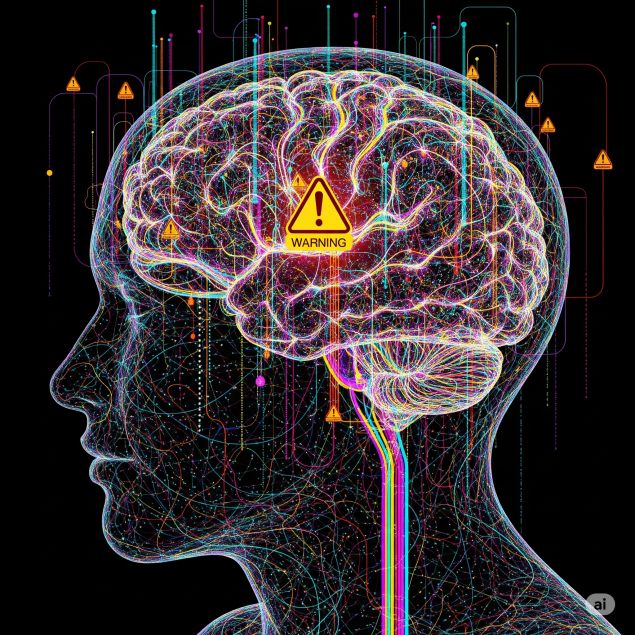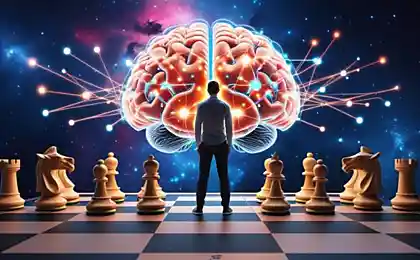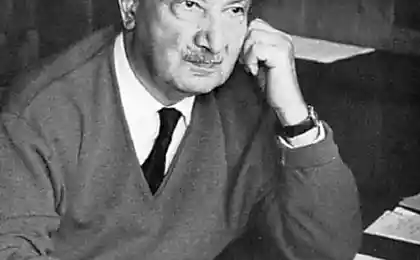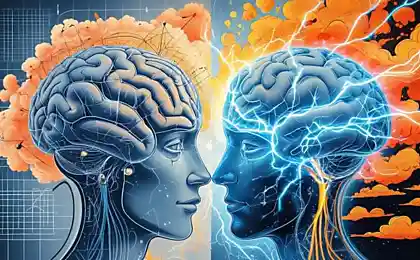156
Why You Never Solve Problems If You Think About Them Too Much

A familiar situation? You have a problem and you start analyzing it from all sides. Scrolling through scripts, looking for tricks, weighing the pros and cons. Days turn into weeks and the problem remains unresolved. The paradox of modern thinking is that overthinking becomes not the key to a solution, but a secure lock on the exit door.
The Trap of the Modern Mind
Our brains are amazing tools that can do incredible things. But sometimes he works against us. Imagine that your mind is a super-powerful computer, which instead of solving a problem fixates on endless analysis of input data. This is what happens when we fall into the trap of overthinking.
85%
People experience paralysis of analysis when making important decisions
Contemporary psychology refers to this phenomenon as “analysis paralysis,” a condition in which an excess of information and options paralyzes the ability to act. Studies show that when a person has more than 10-12 choices, their ability to make decisions is drastically reduced.
Anatomy of a mental trap
The prefrontal cortex is working on wear.
When you focus on gathering information and assessing risk, your prefrontal cortex, the part of the brain responsible for complex planning, begins to work in overload mode. Instead of clarity, it feels like you're drowning in a sea of data.

The Danger of Finding the Perfect Solution
Each new “what if” creates a new kind of doubt. You are looking not just for a solution, but for the perfect, infallible, guaranteed successful solution. And that doesn't exist in the real world. The longer you seek perfection, the more likely it is that you will not take a step at all.
Emotional exhaustion as a side effect
Constantly scrolling through the problem in your head is not a neutral process. Each thought cycle is fueled and fueled by emotions: anxiety, fear of failure, frustration, anger at oneself or circumstances. You find yourself in a vicious circle of rumination—obsessive, repetitive thinking.
Rumination increases levels of cortisol, a stress hormone, to critical levels. This prevents you from thinking clearly and acting rationally. Chronically elevated cortisol literally destroys neural connections in the hippocampus, which is responsible for memory and learning.
Constantly scrolling through thoughts about a problem can lead to learned helplessness – a feeling that you are not able to change anything at all, and a reluctance to do anything.
Distortion of reality through the prism of anxiety
When you think too long about a problem in isolation from action, your perception of reality begins to distort. Thoughts become a self-fulfilling prophecy. Fear of possible failure makes you see threats where they do not exist, exaggerate difficulties, minimize your strength.
The problem in your head grows to the size of a monster, which is already scary to fight.
You begin to believe in the picture created by your own overloaded mind, and not in objective facts. Action plans based on this distorted vision often lead to ineffective or overly complex decisions – or total inaction.
The cost of delay
As long as you think about the options, the world does not stand still. The context is changing, new circumstances, new data and opportunities are emerging. Fast action, though not perfect, often provides more information and ways to correct course than months of thought.

67%
Successful entrepreneurs make decisions in 24 hours or less
You may miss a window of opportunity that only opens for a while. A problem that could be solved relatively simply early on while you were “thinking” could be a disaster.
The illusion of control
Overthinking often serves as a psychological defense, creating the illusion of control. It seems that if you think through everything, you can avoid mistakes, pain, failure. This feeling of “I’m working on a problem” temporarily reduces anxiety, but it’s self-deception.
Real control comes only through interaction with reality – through action, feedback, correction. Thinking without action is nothing more than an escape from the present, albeit risky, problem-solving process into a safe but fruitless world of fantasy and simulation.
Depletion of mental resources
Your brain consumes about 20% of your body’s energy, even though it is only 2% of your body weight. Constant intensive mental work on the same problem depletes cognitive resources, causing mental fatigue.
You become less able to think creatively, focus on other tasks, and make decisions. You spend all your mental energy on a mental treadmill without making it to the finish line.
Loss of connection to the present
When you sink into the abyss of thinking about a problem, your consciousness almost always flies either into the past or into an anxious future. The most important moment, the present, falls out of focus. But that’s where you have real power and the ability to make a difference.
You cannot rewrite the past, and the future is a projection of your current fears and hopes, not reality. Stuck in thought loops “then” and “then,” you don’t notice the small opportunities for action that are right in front of you.
Practical strategies for breaking the trap
"Rules 10-10-10"
Ask yourself, “How will I feel about this decision in 10 minutes, 10 months and 10 years?” This will help to see the problem in perspective and avoid catastrophe.
“Maximum information, minimum time”
Set a strict time limit for gathering information, such as 2 days. Then make a decision based on the available data. Remember: 80% of information is usually enough for 95% of decisions.
Test ball technique
Instead of finding the perfect solution, try the quickest and easiest solution. Think of it as an experiment, not a final solution. Feedback from reality will give you more information than hours of thought.
It won't get any worse.
If you’ve been thinking about a problem for a long time, ask yourself, “Can rapid action make things worse than inaction?” Often the answer will be no.
Mindfulness meditation
Practicing mindfulness helps you get back to the present moment. Just 10 minutes of meditation per day can significantly reduce rumination levels and improve decision-making ability.
Stop signal technique
When you catch yourself looping, physically say “Stop!” and switch to a specific action. It can be anything: write down three possible steps, call a friend for advice, or just go for a walk.
Real success stories
Sarah Blakely, founder of Spanx, recounts how she spent just two weeks researching the lingerie market and then jumped straight into action. She didn't expect a perfect business plan or a complete understanding of the industry. The result? A billion-dollar company.
Reed Hastings created Netflix after being fined $40 for an expired videotape. He didn't spend years analyzing the entertainment market - he just took action. Sometimes the best decisions come through action, not through reflection.
Main conclusion
Your brain is not a machine for analysis, but a tool for solving problems. Overthinking turns this tool into a brake. Remember, an imperfect action is better than perfect inaction. Reality is a better teacher than fantasy in your head.
Glossary
Analysis paralysis
A condition in which an excess of information and choices leads to an inability to make a decision
Prefrontal cortex
Brain department responsible for planning, decision-making and behavior control
Rumination
Obsessive, repetitive thinking focused on the negative aspects of the problem
cortisol
Stress hormone produced by the adrenal glands in response to stressful situations
Learned helplessness
A psychological state in which a person does not attempt to change the situation, even when it is possible
mindfulness
Practice conscious attention to the present moment without judgment
hippocampus
Brain area important for memory formation and learning
How not to give in to discouragement when life does not go the way you wanted
5 things you don’t realize because you’re addicted to dopamine























